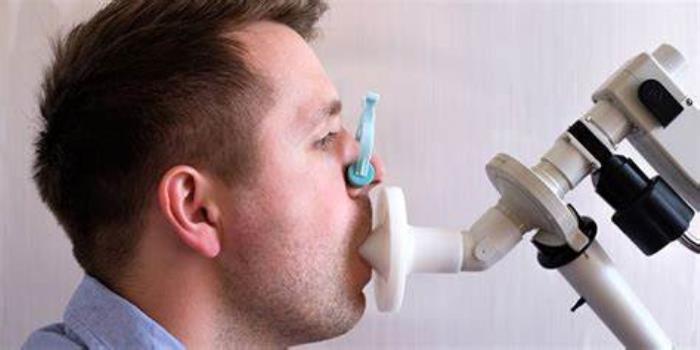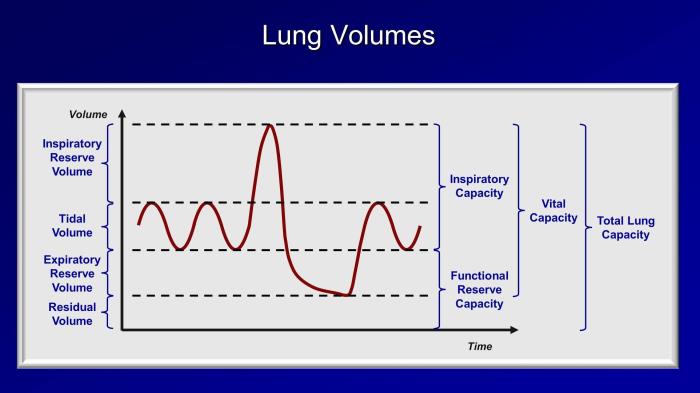Lung function tests (LFTs) are critical assessments performed on patients who have undergone an organ transplant. These tests evaluate the efficiency and capacity of the lungs, ensuring that the transplanted organ is functioning optimally. They help in identifying any potential complications early, which is crucial for the long-term success of the transplant. Monitoring lung function post-transplant allows healthcare providers to make informed decisions regarding immunosuppressive therapy and other interventions necessary for maintaining the health of the transplant recipient.
Medical disclaimer: This content is for general awareness and does not replace a doctor’s consultation. For diagnosis or treatment decisions, consult a qualified specialist.
Types of Lung Function Tests Utilized Post-Transplant
Various lung function tests are employed to assess the respiratory status of transplant patients. The most common include spirometry, which measures airflow and lung volumes; diffusion capacity tests, which assess how well oxygen passes from the lungs into the bloodstream; and peak flow measurements, which gauge the maximum speed of exhalation. Each test provides invaluable data that can help in diagnosing complications such as rejection or infection and in evaluating the overall pulmonary health of the patient.
The Role of Lung Function Tests in Detecting Rejection
Post-transplant, one of the primary concerns is the possibility of organ rejection. Lung function tests play a pivotal role in detecting early signs of rejection. A decline in lung function parameters can indicate that the immune system is attacking the transplanted organ. Regular monitoring through these tests enables healthcare providers to initiate timely interventions, such as adjusting immunosuppressive medications, which can significantly improve patient outcomes and preserve organ function.

How Lung Function Tests Aid in Monitoring Complications
Complications following a lung transplant can include infection, bronchiolitis obliterans, and other pulmonary issues. Lung function tests are essential tools for monitoring these complications. Changes in lung volumes or airflow can signal the onset of such conditions. By regularly performing these tests, clinicians can detect complications early, allowing for prompt treatment and management strategies that can mitigate long-term damage to the transplanted lung.
Importance of Baseline Lung Function Tests After Transplant
Establishing a baseline lung function profile is crucial for transplant recipients. Baseline tests provide a reference point against which future lung function can be compared. This comparison is vital for detecting any deviations from the norm that may indicate complications. Understanding the patient's initial lung capacity and function helps in tailoring individualized care plans and interventions, optimizing the overall management of the transplant recipient.
Patient Education on Lung Function Tests Post-Transplant
Educating patients about the significance of lung function tests is essential for their engagement in post-transplant care. Patients should understand how these tests contribute to their health and the early detection of potential issues. Providing clear information about what to expect during the tests, their purpose, and the implications of the results empowers patients to take an active role in their health management and encourages adherence to follow-up appointments.
Factors Influencing Lung Function Test Results After Transplant
Several factors can influence the results of lung function tests in transplant recipients. These include age, gender, body composition, and pre-existing lung conditions. Additionally, the type of transplant and the presence of any complications can affect lung function. Understanding these factors is crucial for interpreting test results accurately and for making appropriate clinical decisions regarding the management of the patient’s care.

Frequency of Lung Function Tests for Transplant Recipients
The frequency of lung function tests after transplantation is typically guided by the patient's clinical status and the protocols of the transplant center. Initially, tests may be conducted more frequently—often weekly or monthly—before transitioning to a less frequent schedule as the patient stabilizes. Regular assessments are vital to ensure ongoing monitoring of lung health and to identify any emerging issues promptly.
Interpreting Lung Function Test Results in Transplant Patients
Interpreting lung function test results requires a comprehensive understanding of the patient's clinical context. Results are compared against established norms and the patient's baseline values. A decline in values may indicate potential complications, while stable or improving results suggest good lung function. Clinicians must consider various factors, including the patient's overall health, medication adherence, and any symptoms reported, to make informed decisions based on test outcomes.
Common Symptoms Indicating the Need for Lung Function Testing
Patients may experience various symptoms that warrant immediate lung function testing after transplantation. These symptoms can include shortness of breath, persistent cough, chest pain, or fever. Such symptoms may indicate underlying complications, including infection or rejection. Prompt evaluation through lung function tests is crucial in these situations to ensure timely diagnosis and management, ultimately safeguarding the health of the transplanted organ.
The Impact of Lifestyle on Lung Function Post-Transplant
Lifestyle choices significantly influence lung function after transplant surgery. Factors such as smoking, physical activity, and diet can impact overall lung health. Patients are encouraged to adopt a healthy lifestyle that includes regular exercise, a balanced diet, and avoiding harmful substances. Such measures can help enhance lung function and improve overall health, thereby supporting the success of the transplant and reducing the risk of complications.
Technological Advances in Lung Function Testing
Recent technological advancements have enhanced the accuracy and efficiency of lung function testing. Innovations such as portable spirometers and mobile health applications allow for easier monitoring of lung function in real-time. These technologies enable patients to conduct tests at home, facilitating better adherence to testing schedules and improving overall patient engagement in their care. Such advancements represent a significant step forward in managing lung health post-transplant.
Collaboration Between Healthcare Providers and Patients
Effective collaboration between healthcare providers and patients is essential for successful lung function monitoring post-transplant. Open communication regarding test results, treatment options, and lifestyle modifications fosters a supportive environment for patients. Providers must encourage patients to voice their concerns and symptoms, ensuring that care plans are tailored to individual needs. This partnership enhances patient compliance and contributes to improved health outcomes.
Psychosocial Factors Affecting Lung Function After Transplant
Psychosocial factors play a crucial role in the recovery and lung function of transplant patients. Issues such as stress, anxiety, and depression can adversely affect physical health and adherence to medical advice. Addressing these psychosocial challenges through counseling and support groups is vital for improving patient outcomes. Mental well-being is closely linked to physical health, making it essential to consider these factors in post-transplant care.
Long-term Monitoring of Lung Function After Transplant
Long-term monitoring of lung function is crucial for transplant recipients. Ongoing assessments help identify any gradual decline in lung capacity or function, which may signal complications. Regular follow-up appointments and lung function tests are essential components of post-transplant care, ensuring that any issues are detected and managed promptly. This proactive approach is vital for maintaining the health and longevity of the transplanted organ.
The Importance of Immunosuppressive Therapy in Lung Transplant Recipients
Immunosuppressive therapy is a cornerstone of post-transplant care, crucial for preventing organ rejection. However, these medications can have side effects that may impact lung function. Regular lung function tests help monitor these effects, allowing healthcare providers to adjust therapy as needed. Balancing effective immunosuppression with the minimization of side effects is essential for optimizing lung health and overall patient outcomes.
Exploring the Role of Stem Cells in Lung Transplantation
Dive into the promising role of stem cells in lung transplantation. Learn how stem cell research is paving the way for improved outcomes and innovative treatments.
Role of Artificial Lungs and Future Innovations in Transplants
Explore the role of artificial lungs and cutting-edge innovations shaping the future of lung transplants. Learn about emerging technologies and their potential impact.
Research and Future Directions in Lung Function Testing
Ongoing research into lung function testing methods and their implications for transplant patients is vital for improving patient care. Studies aim to refine testing protocols, enhance the accuracy of assessments, and explore new biomarkers for early detection of complications. Future advancements may lead to more personalized approaches in monitoring and managing lung health, ultimately improving the quality of life for transplant recipients.
Best Lung Transplant in India
The Best Lung Transplant in India offers a vital treatment option for patients with end-stage lung diseases, combining advanced surgical expertise with comprehensive post-transplant care.
Best Lung Transplant Hospitals in India
The Best Lung Transplant Hospitals in India are equipped with cutting-edge technology and experienced transplant teams, ensuring seamless care and improved outcomes for patients.
Lung Transplant Cost in India
The Lung Transplant Cost in India is structured to provide affordability while maintaining high standards of medical care and long-term support for patients.
Best Lung Transplant Surgeons in India
The Best Lung Transplant Surgeons in India are highly skilled in handling complex transplant cases, offering precise surgical interventions and personalized patient care for successful recoveries.
FAQs About Lung Function Tests After Transplant
What are lung function tests, and why are they performed after a transplant?
Lung function tests measure how well the lungs are working. They are performed after a transplant to monitor the health of the transplanted organ and detect any early signs of rejection or complications.
How often should lung function tests be conducted after a transplant?
The frequency of lung function tests varies based on individual patient needs and transplant center protocols. Initially, tests may be conducted weekly or monthly, transitioning to less frequent assessments as the patient stabilizes.
What symptoms should prompt immediate lung function testing?
Symptoms such as shortness of breath, persistent cough, chest pain, or fever should prompt immediate lung function testing, as they may indicate underlying complications that require prompt attention.
How can lifestyle changes impact lung function after a transplant?
Lifestyle changes, such as quitting smoking, maintaining a healthy diet, and engaging in regular exercise, can positively impact lung function and overall health, supporting the success of the transplant.
Maintaining a healthy immune system after a lung transplant is crucial for preventing infections and ensuring the longevity of the transplanted lung. Key strategies include adhering to prescribed immunosuppressive medications, following a balanced diet rich in nutrients, engaging in regular physical activity, avoiding smoking and exposure to secondhand smoke, getting recommended vaccinations, and practicing good hygiene. Regular follow-up appointments with healthcare providers are essential for monitoring immune function and addressing any issues promptly. How to Maintain a Healthy Immune System After a Lung Transplant
Vaccination plays a crucial role in protecting lung transplant recipients from infections. Before the transplant, patients should receive vaccines to prevent infections that could complicate surgery and recovery. After the transplant, continued vaccination is essential due to the immunosuppressive medications that increase susceptibility to infections. Vaccines help prevent serious illnesses such as influenza, pneumococcal disease, and COVID-19, improving overall outcomes and quality of life. The Importance of Vaccination Before and After a Lung Transplant
Artificial lungs are medical devices designed to support or replace the function of the lungs, particularly for patients with severe lung diseases. These devices, such as extracorporeal membrane oxygenation (ECMO) and hollow fiber membrane gas exchangers, can serve as a bridge to lung transplantation or even as a long-term solution. Recent advancements in biomaterials and tissue engineering have led to the development of bioartificial lungs, which mimic the properties of natural lungs. Role of Artificial Lungs and Future Innovations in Transplants